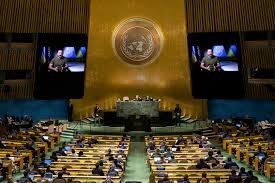Diplomatic Efforts to End Conflict Grind to a Halt
In the wake of a brutal and deadly wave of Russian airstrikes on Kyiv, a palpable sense of frustration and stagnation has settled over the international community, as the once-active diplomatic efforts to end the conflict appear to have ground to a halt. This grim reality hangs heavy over the forceful condemnations issued by Western capitals, which, while united in their outrage, seem to be lacking a viable pathway to de-escalation or negotiation. The recent violence, which resulted in significant civilian casualties and damage to diplomatic premises, has acted not as a catalyst for new peace initiatives but as a stark reminder of the profound and seemingly unbridgeable chasm that currently exists between the warring parties and their allies. The collective response, though powerful in its rhetoric, underscores a painful admission that for the moment, the machinery of diplomacy has stalled, leaving a vacuum filled by the grim persistence of warfare.
European leaders were quick to voice their fury, though likely under no illusion that their words would immediately translate into a breakthrough. In London, the Russian ambassador was formally summoned to the Foreign Office to face a stern rebuke, with Prime Minister Keir Starmer accusing President Putin of actively sabotaging any lingering hopes for a peaceful resolution. In a powerfully symbolic move in Brussels, European Commission President Ursula von der Leyen stood before a large image of the EU’s damaged delegation building in Kyiv to express her personal outrage, framing the attack as one on shared European values and security. This sentiment was echoed in Berlin, where German Chancellor Friedrich Merz decried the “growing unscrupulousness of the Russian regime,” and from Paris, where condemnation was swift and severe. Across the Atlantic, the White House’s Ukraine envoy, Keith Kellogg, described the airstrikes as egregious and a direct threat to President Trump’s attempts to broker a deal, highlighting how the escalation is perceived as a setback for American diplomatic ambitions as well.
Yet, from Moscow, the rhetoric could not be more different. Kremlin spokesman Dmitri Peskov maintained that Russia remains interested in talks, but he simultaneously accused Ukraine of escalating hostilities by targeting Russia’s civilian infrastructure, a reference to the ongoing and effective campaign by Kyiv that has damaged two more Russian oil refineries. This exchange—accusations and counter-accusations delivered from podiums thousands of miles apart—epitomizes the current deadlock. The high-profile diplomatic engagements that characterized recent months, including Donald Trump’s summit with European leaders and various discussions in Washington, have failed to generate any forward momentum. Instead of building upon these meetings, the diplomatic efforts to end the conflict appear to have ground to a halt, frozen by a fundamental lack of trust and by the fact that both sides believe more can be achieved through military pressure than through concessions at the negotiating table. This stasis suggests that the world is now facing a prolonged period of violent stalemate, where the urgent diplomatic efforts to end the conflict remain desperately needed but are, for now, frustratingly out of reach, leaving nations to manage the crisis rather than resolve it.
Go To Main Page

